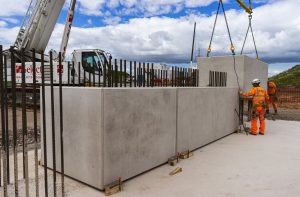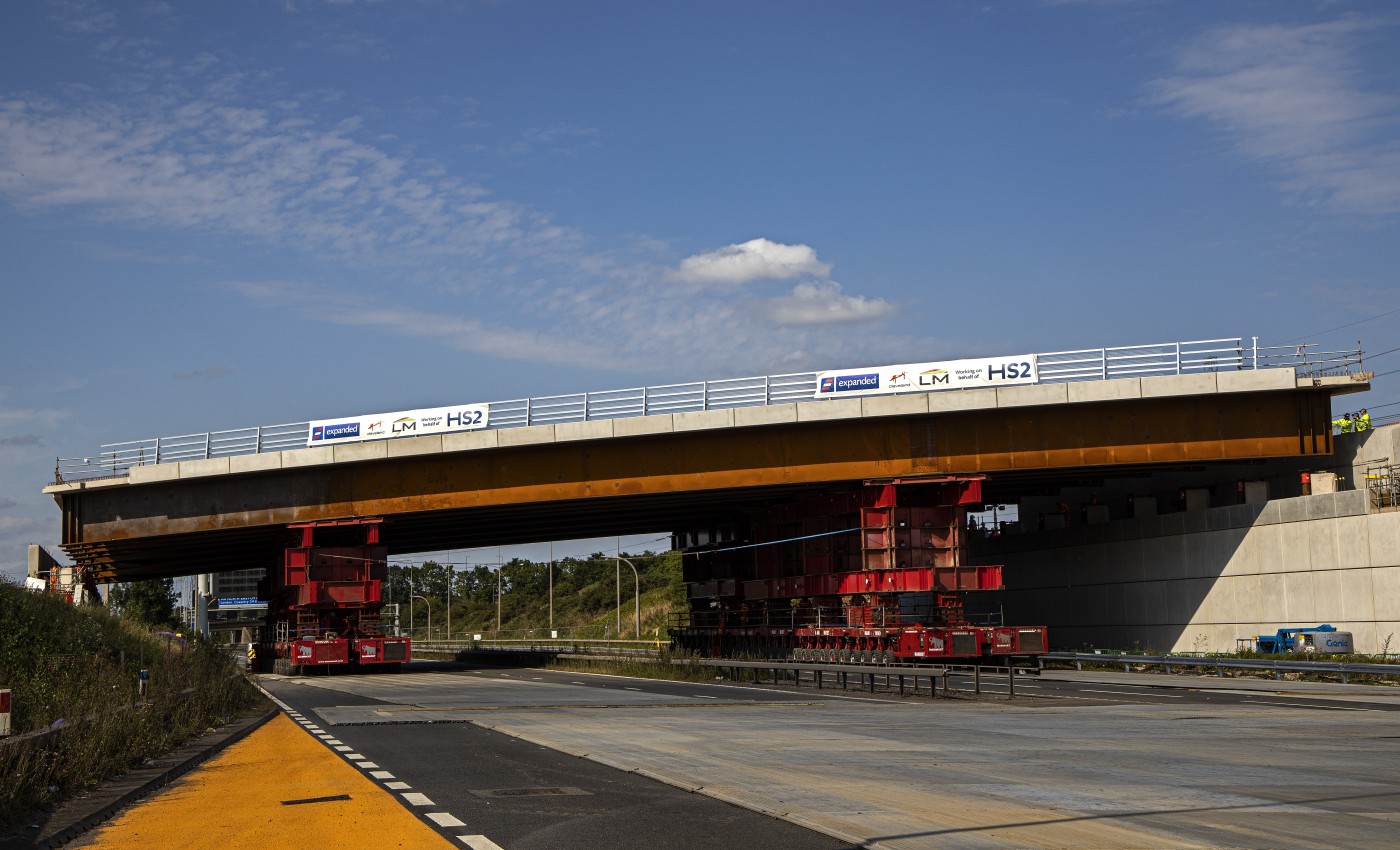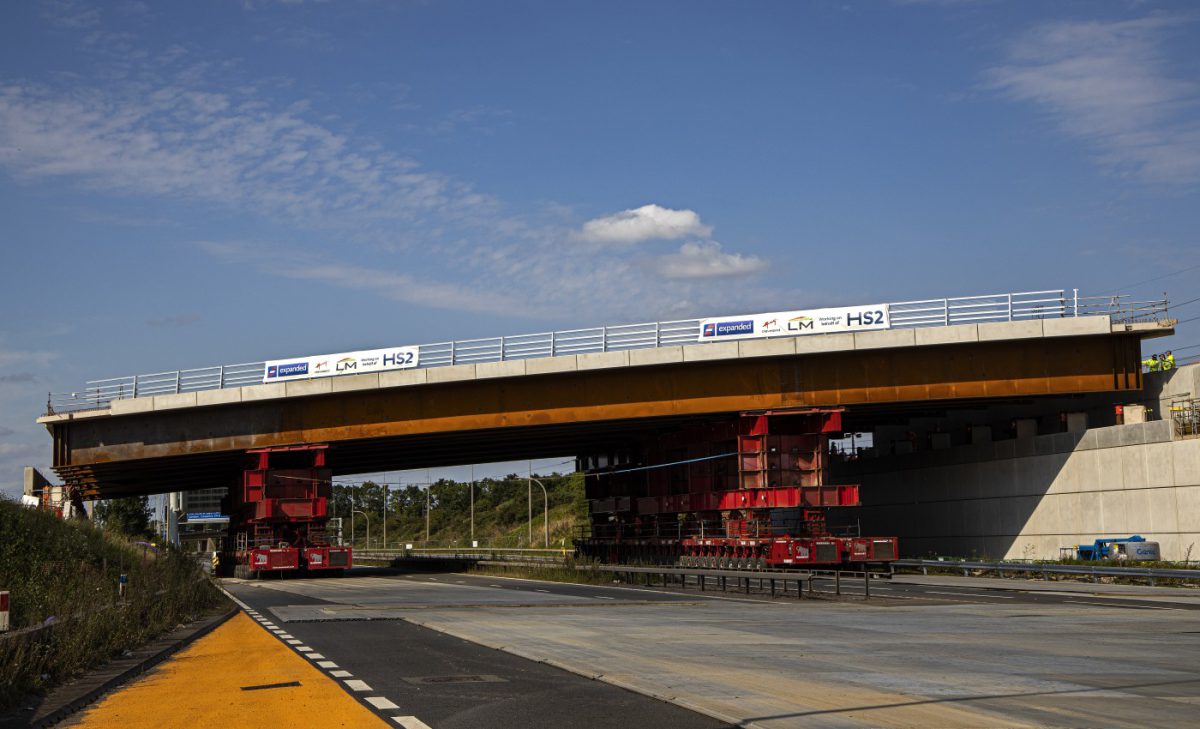LM – a joint venture of Laing O’Rourke and J. Murphy & Sons Ltd – was appointed by HS2 to deliver the enabling works across Birmingham and the West Midlands for Phase One of the new high-speed railway. Near the planned Interchange station in Solihull, a project to improve the local road network, and provide access to the new station, required the construction of four new bridges. These were delivered by LM during 2020.
The design and manufacture of the four modular structures represents a turning point in the way Britain builds bridges. To date, bridge design and construction has varied little from established methodology, based upon time-served designs, in-situ pouring of wet concrete, with associated temporary works in preparation; all dependent on a large workforce and considerable resources.
LM – a joint venture of Laing O’Rourke and J. Murphy & Sons Ltd – was appointed by HS2 to deliver the enabling works across Birmingham and the West Midlands for Phase One of the new high-speed railway. Near the planned Interchange station in Solihull, a project to improve the local road network, and provide access to the new station, required the construction of four new bridges. These were delivered by LM during 2020.

The design and manufacture of the four modular structures represents a turning point in the way Britain builds bridges. To date, bridge design and construction has varied little from established methodology, based upon time-served designs, in-situ pouring of wet concrete, with associated temporary works in preparation; all dependent on a large workforce and considerable resources.
From the outset, LM sought to increase delivery efficiency using the latest methods of digital design, offsite manufacturing, and just-in-time logistics. The result saw the bridges built in a virtual space long before the real world, using a set of components built offsite in a state of the art factory to high standards, and then delivered to site for assembly.
All four bridges used block concrete abutments which, thanks to the modular design concept, could be specified from a ‘kit of parts’. The two main highway bridges (over the M42 and A446 respectively) were built using steel girders for the spans. These were then fitted with modular decking blocks, also factory-made offsite. The two bridges over the planned HS2 rail alignment also utilised modular abutments, but used pre-stressed concrete beams for the spans, due to the shorter width requirement.
These bridges have set new standards for major infrastructure delivery. Higher quality, greater efficiency, faster delivery, greater safety, reduced workforce requirements on site, and carbon reduction have all been recorded, in a project under intense scrutiny for value and high-quality delivery.
Collaborative working with stakeholders and major partners such as Highways England were crucial to the project’s success, and with the methodology approved, construction and placement of the abutment blocks beside busy strategic roads was able to continue without the need for lane closures.
The M42 and A446 bridges were assembled beside the roads, with only a planned weekend road closure needed to move them into position. Special purpose modular transporters (SPMTs) were used in each case to lift the completed structures and drive them into position. For both, these intricately planned processes were achieved, and the roads reopen almost a day ahead of schedule.
This success has proved the approach to be beneficial for major infrastructure projects, and the team are already looking to replicate the strategy at several further sites across the UK.








